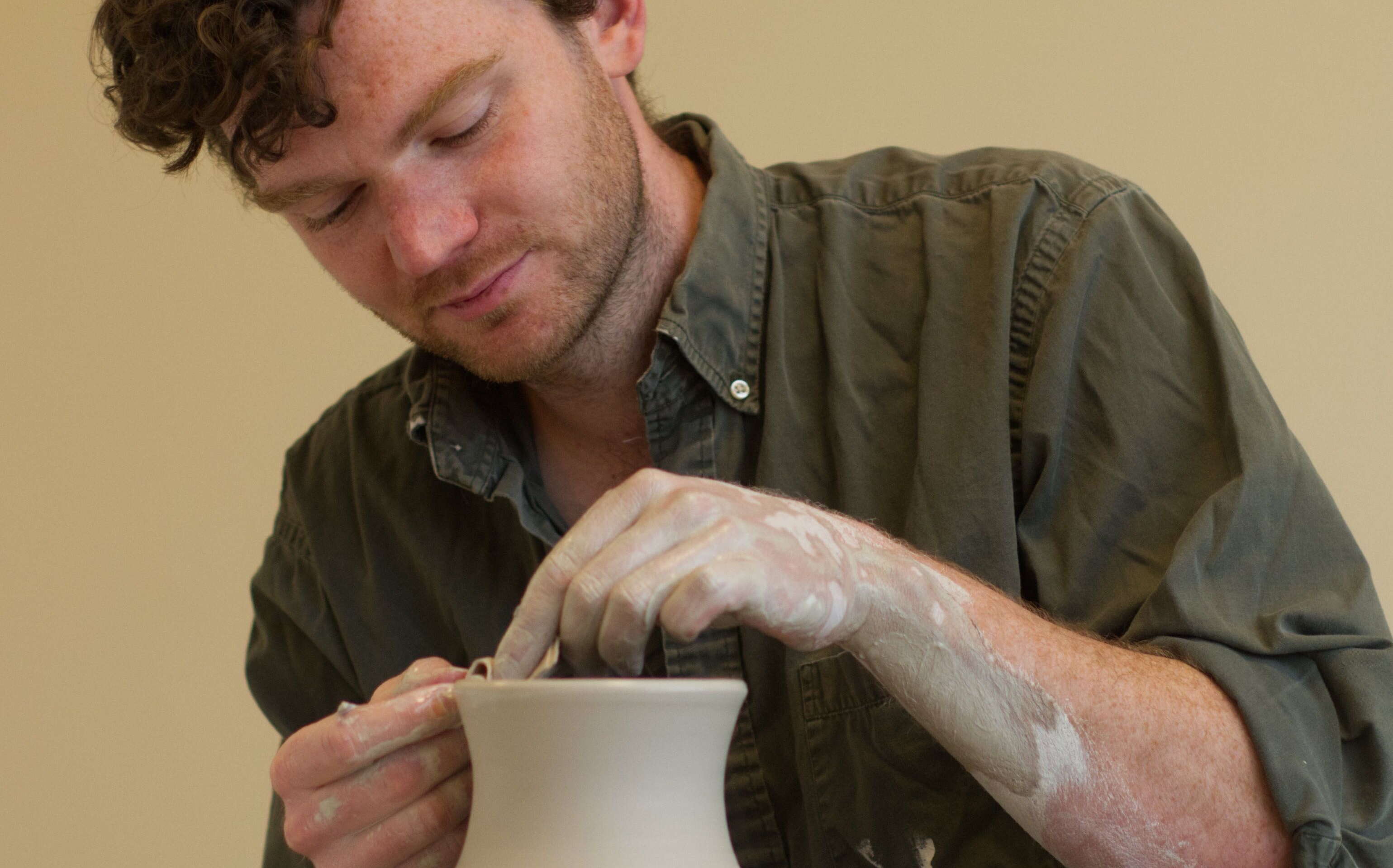
In Portland, a startup finds pent-up demand for pottery classes
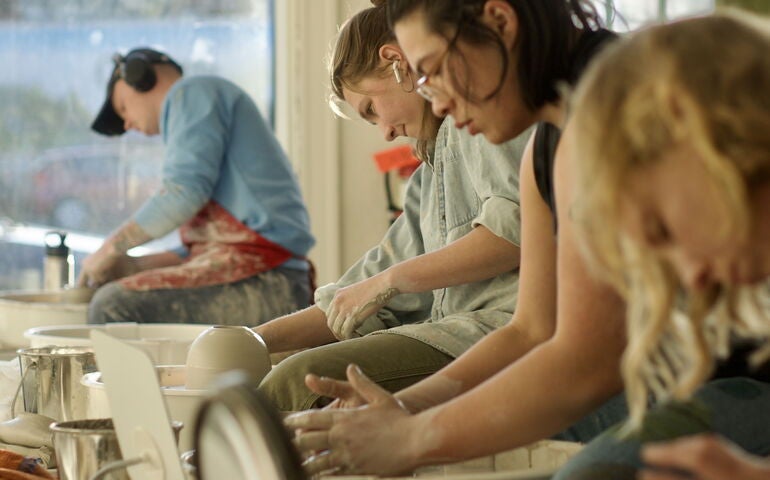 Courtesy / Handful Studios
Handful Studios attracted students to its pottery classes from its very start.
Courtesy / Handful Studios
Handful Studios attracted students to its pottery classes from its very start.
The age-old craft of pottery is still current with people looking for a meditative experience, some decorative ware — and maybe even a new business.
A recent entry into the field is Portland's Handful Studios, which in February had a soft launch at a 5,000-square-foot site on Forest Avenue.
Julian Erickson-Watson started the teaching studio when he realized he was increasingly engaged in what started as a hobby.
“Once I had the website up and had class offerings, I started to field emails from people who wanted to sign up,” he said.
Kilns and wheels
“I kind of fell into pottery,” he added.
Originally from northern California, Erickson-Watson graduated from Amherst College in Massachusetts in 2021 and soon moved to Portland to live with friends.
He started to apply for editorial internships. But he was also taking pottery classes and fell in love with the art form.

“I found myself spending 25, 30 hours in the studio while I was working service industry jobs,” Erickson-Watson said.
His parents both run small businesses, and he’d always been interested in business and management. So the decision to start a teaching studio came naturally.
Erickson-Watson looked through commercial real estate listings in Greater Portland and found a 5,000-square-foot space at 369 Forest Ave., listed by Peter Harrington, with assistance from Michelle Peacock, of Malone Commercial Brokers.
The single-story brick building was once a car dealership.
The property has a sunny interior, room to expand and proximity to downtown Portland and to parking.
Using his savings and a loan from a family friend, he invested about $170,000 into the business, starting with renovations that included ripping out 4,000 square feet of drop ceiling. Fit-up of the first classroom included purchase of a kiln, 11 pottery wheels, a double-bay sink and work tables.
Instagram marketing
Erickson-Watson built a website and a schedule of introductory and intermediate classes that he would teach.
He approaches teaching from a technical standpoint.
“Pottery is an interesting combination of art, of course, but also craft,” he said. “There’s a lot of technical proficiency to get to the forms necessary where you can be more creative with them. Thinking it through made me better and gave me the vocabulary to explain it to other people and also to identify when others have issues or questions.”
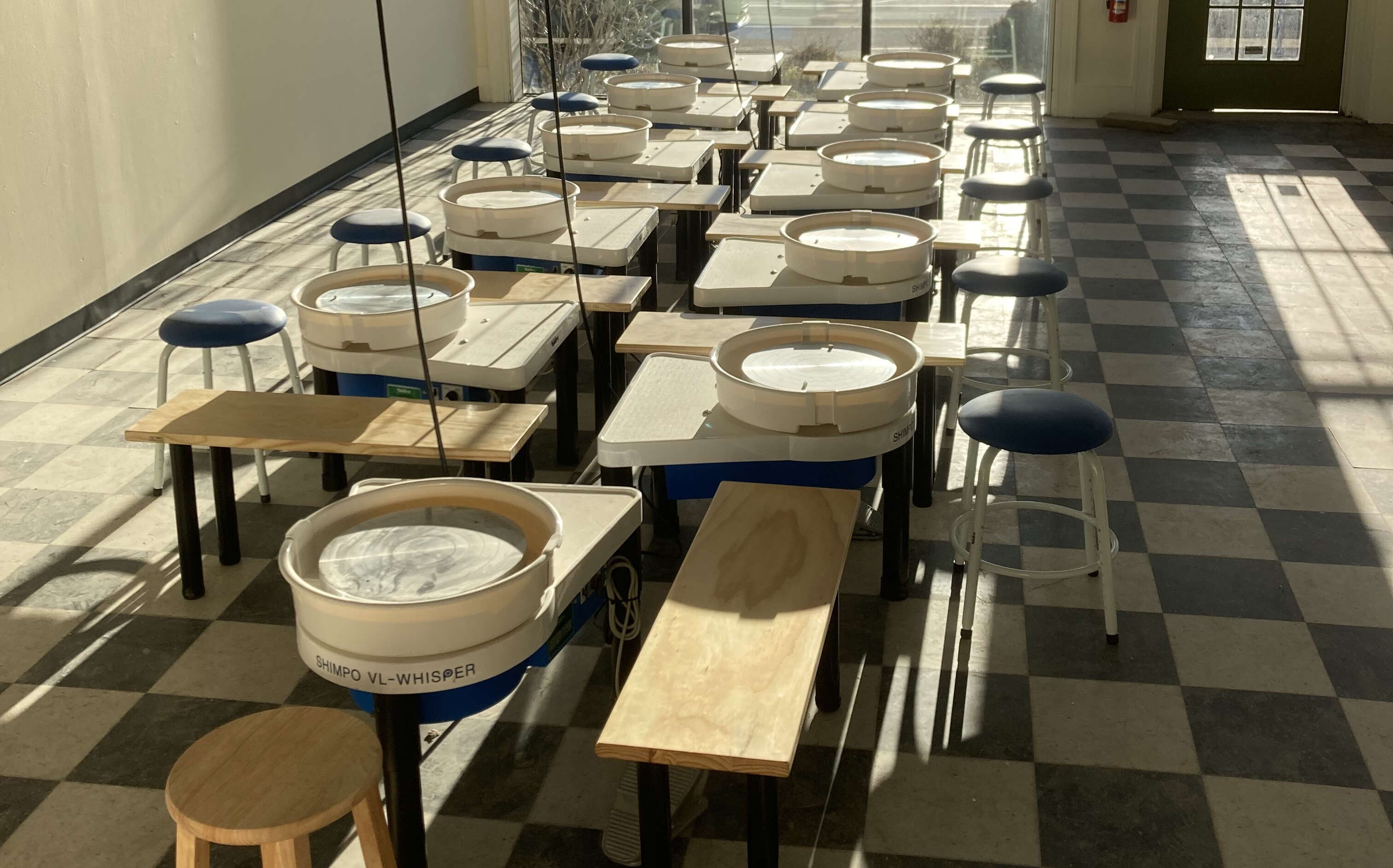
Word got out, mainly through Instagram.
“Pottery is huge on Instagram,” the new business owner said. “And there’s a pretty large demand.”
He worked with the Maine Small Business Development Centers, which featured his studio in a recent newsletter and on its Instagram page. SBDC also helped with financial projections.
“I had some rudimentary numbers and spreadsheets," he said. "Having the full multi-year financial projections with depreciation and the loan and all of that baked in was super helpful."
Smartphone antidote
The studio opened in February with 38 students across five classes. Soon Erickson-Watson had nearly 50 students and was renovating and fitting up a second classroom to add evening classes.
“There’s a lot of demand for night classes, because people work from nine to five,” he said.
He’s in the process of onboarding three teachers. The studio offers throwing and hand-building classes, which run for six weeks, meeting once a week for three hours. Some classes include an hour of one-on-one instruction. Tuition covers a bag of clay, use of glazes, tools, studio equipment and access to open studio time.
“The appeal for a lot of people is it’s incredibly meditative,” Erickson-Watson said. “Picture someone working in an office at a computer all day — doing important and satisfying work but disconnected from their physical body. Then come to a pottery community — there’s music playing, it’s a nice space, you’re talking and being, it’s creative and tactile.”
Now age 31, he said with a laugh, “I have an attention span that’s destroyed by smartphones and the internet. I find myself continuously listening to podcasts or audiobooks when I’m doing the dishes or whatever. But pottery is something I can do with nothing going on. That’s really my meditation. I think that’s the draw for a lot of people.”






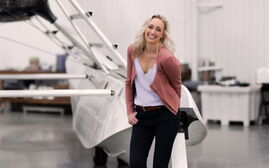

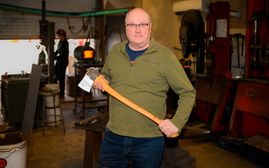




0 Comments